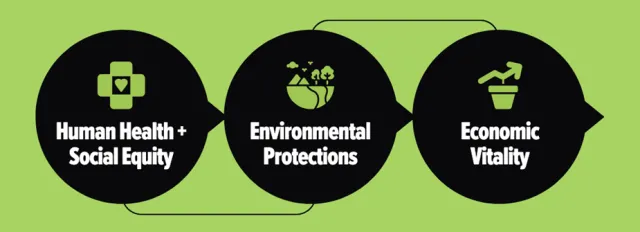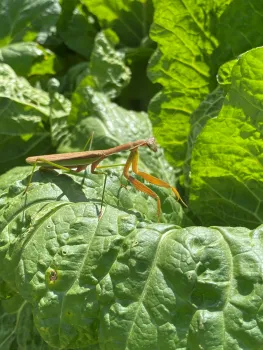News from the UC Statewide IPM Program: Is UC Changing IPM to SPM?
Most UC Master Gardeners are familiar with the term Integrated Pest Management, or IPM, but some may have recently learned about SPM, which stands for Sustainable Pest Management. How are these two terms similar and different, and how does this affect how we talk about IPM within UC ANR?
How do IPM and SPM differ?
The concept of IPM has existed for decades as a way to sustainably manage pests using methods that are both effective and less harmful to people and the environment. Long-term prevention of pests and their damage is the focus of IPM and achieved by using a combination of management methods such as biological control (i.e., relying on natural enemies such as lady beetles to manage pests), cultural control (i.e., giving plants proper water to prevent root rots), physical/mechanical control (i.e., trapping or manually removing pests), and lastly chemical control (i.e., pesticides including less toxic products). Read more and find UC IPM’s official definition on our What is IPM? page.
The term SPM was recently coined when California state agencies developed a Sustainable Pest Management Roadmap. This new term is an expansion of IPM with a stronger emphasis on what’s known as the three pillars of sustainability: social, environmental, and economic. It is a more holistic approach to managing pests that addresses impacts on public health and community equity, linkages to broader environmental issues like water conservation, biodiversity conservation, soil health, climate change, and economic vitality.

Is UC IPM Changing Its Name?
Since the release of the SPM Roadmap, UC IPM has received numerous questions about whether we are rebranding or changing our name to reflect SPM. Rest assured, the UC Statewide IPM Program will continue to use the term IPM and we are not changing our name anytime soon. We are one of the recognized Statewide Programs within UC ANR and will continue with our long-standing branding and mission.
UC IPM has been engaging in many SPM practices over the years as we educate Californians on public health pests, nonchemical pest management methods, pesticide safety and less toxic pesticides, and the long-term financial benefits of IPM programs. We will continue to incorporate the concepts of sustainability into our resources and messaging. One way we can do that is by considering barriers that may affect someone’s choice to use IPM or SPM methods. These may include:
- Physical ability: not everyone may be able to hand pull weeds or prune out diseased tree branches on their own.
- Income: pesticides and other pest management tools, such as traps, can be expensive.
- Knowledge: not being aware of the risks certain pests or pesticides can pose, or how to manage a pest without pesticides.

Should UC Master Gardeners use the term IPM or SPM?
Whether you choose to call it sustainable, holistic, environmental, integrated or use the term IPM or SPM, we hope you engage in pest management practices that are science-based, effective, and less harmful to people and the environment. In IPM (and SPM) there are no one-size-fits-all solutions and we rely on a combination of various pest management methods to provide long-term control. This means that you often have many options to choose from when managing a pest to accommodate your specific needs and situation.
For those who educate others on IPM, please be sure to join the UC IPM webinar on Communicating IPM on May 7, 2025. Register here.
To learn more about SPM and the Sustainable Pest Management Roadmap, visit www.cdpr.ca.gov/spm-ipm-overview/.
For resources and tools for sustainably managing pests, UC Master Gardeners should continue to use the UC IPM website at ipm.ucanr.edu.
